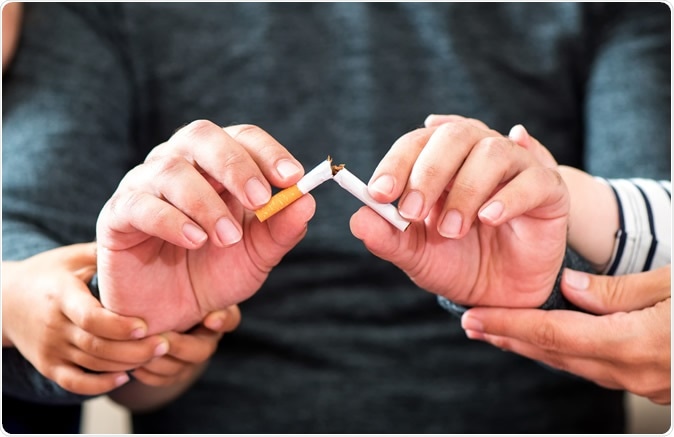It’s never too late to quit smoking, as a new study shows the lung’s ability to heal and regrow damaged cells caused by cigarette smoking, even if they smoked for decades.
Cigarette smokers have long been told that the risk of developing cardiovascular disease and lung cancer will drop if they quit smoking, preventing new damage to the body. In a new study published in the journal Nature, a team of researchers revealed that the lungs can reverse cell damage, with ex-smokers having nearly normal profiles even if they smoked for 30 or more years.
The World Health Organization (WHO) reports that there are about 1.1 billion smokers across the globe with 1.8 million lung cancer deaths reported each year. Lung cancer develops after many years or decades of smoking, with smokers having a 30-fold higher risk of developing the disease compared to those who never smoked.
Tobacco smoke contains carcinogenic chemicals that damage the DNA in lung cells, leading to mutations. In this case, the previous body of knowledge shows that these mutations that lead to lung cancer have been considered permanent, but with the new study findings, it was revealed that the few cells that escape damage can repair the lungs.

Image Credit: Ilkercelik / Shutterstock
Dormant cells act as lifesavers
The researchers from the Wellcome Sanger Institute and University College London have found that the dormant cells found in the airways, which have avoided damage from tobacco smoke, can spring into life, proliferate or multiply, and replace damaged lung cells.
To land to the study findings, the researchers detected DNA signatures that show the damage source, to shed light on the possible causes of cancer and find the ones that are still unknown. The study highlights the importance of quitting smoking, no matter how long the person has smoked, since it can stop further damage to the lungs and allow new, healthy cells to actively repair the airway linings, which can help protect against lung cancer.
The team performed DNA sequencing in more than 600 individual cells from lung biopsies of 16 people, including those who smoke, ex-smokers, and people who never smoked and children. They analyzed the pattern of genetic changes in the non-cancerous lung cells.
Further findings show that more than 9 out of every 10 lung cells in current smokers had up to 10,000 extra genetic changes or mutations, which were caused by tobacco smoke chemicals. More than a quarter of these damaged cells had at least one cancer-driver mutation, showing why most smokers are at a higher risk of developing lung cancer compared to non-smokers.
Ex-smokers had a lower risk of lung cancer
Quitting smoking has more benefits, than just lowering the risk of lung cancer and cardiovascular disease. Those who stopped smoking, regardless of age and duration of smoking, had four times more healthy cells than those who currently smoke, accounting for about 40 percent of the total lung cells in those who quit smoking.
“People who have smoked heavily for 30, 40 or more years often say to me that it's too late to stop smoking - the damage is already done,” Dr. Peter Campbell, from the Wellcome Sanger Institute, said.
"What is so exciting about our study is that it shows that it's never too late to quit - some of the people in our study had smoked more than 15,000 packs of cigarettes over their life, but within a few years of quitting many of the cells lining their airways showed no evidence of damage from tobacco,” he added.
Though the study shows that healthy lung cells can grow and repair the linings of the airways in ex-smokers, smoking causes damage deep into the lungs, called emphysema. This condition is irreversible even if the person has stopped smoking. Emphysema causes damage to the lung tissue responsible for the exchange of gases, leading to shortness of breath due to over-inflation of the alveoli, the basic functional units of the respiratory system.
Quitting smoking isn’t an easy habit to kick, but seeking professional help from a Stop Smoking Service, may help increase the change of permanently stopping.
Journal reference:
Yoshida, K., Gowers, K.H.C., Lee-Six, H. et al. Tobacco smoking and somatic mutations in human bronchial epithelium. Nature (2020). https://doi.org/10.1038/s41586-020-1961-1